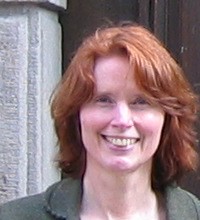Resumes.
During the first part of class, you worked on your resumes. We reviewed both the elements of rhetorical analysis and design analysis as a way to assess how the resume was working (see last post). Audience issues are key for resumes; the resume is your effort to get the attention of your potential employer. Design choices for your resume (like the idea to feature the shark on the sample resume) could make the difference between an interview and being passed over. As discussed in class, when you write your actual resume to submit for a particular job - you may want to start with a template (where you have all your information listed) and revise (create a specific resume) for each particular job.
While you worked on your resumes, I had one-on-one conferences with each of you to talk through your choice of career and the materials you plan to use for writing samples in your portfolio. So far, so good.
I will provide you with general comments on any resumes which are posted by next week.
Cover letters and personal statements.
I fixed the links to the readings on cover letters and personal statements - so they should all work now.
The purpose of a cover letter is to introduce yourself, direct the attention of the reader to any information on the resume or enclosed documents that you feel is particular important to his/her assessment of you; provide any information or rhetorical moves which did not fit into the materials the letter introduces - and which you feel will help your chances for selection.
The readings on personal statements available at the links are general; the form and content of your personal statement will depend on your particular career. In general, personal statements position your beliefs, values and abilities with respect to the field you hope to enter. Personal statements for graduate school applications sound slightly different from personal statements (often teaching philosophies) for teaching postions. Cruise the internet for samples of the "genre" for your profession.
For next class:
Come to class prepared to give a presentation on your cover letter and personal statement. Also, come to class prepared to give your classmates feedback on their cover letters and personal statements.
For your presentation, begin by giving the class detailed information about your chosen profession, and the particular employer to whom this letter is directed (you will want to include a link to the employer's web site, and to be able to talk a little bit about what this site shows about your possible employer's values, beliefs, and preferences regarding its employees skills, behaviors + identities). To this end, at the top of the cover letter posted to your portfolio, include tsome writing to answer the following questions.
- who is my audience (include a link to the potential employer's web site)
- what are the audience's values (as evidenced by what you have read about them & the way they represent their business/institution?)
- how an I a match for this employer?
- what will be the context for where my materials are read? portal? print document? interview? web site? . . .?)
- what do I want to emphasize in order to be a top choice by this employer?
Also - get started on your writing samples, and if you have questions let me know.

No comments:
Post a Comment